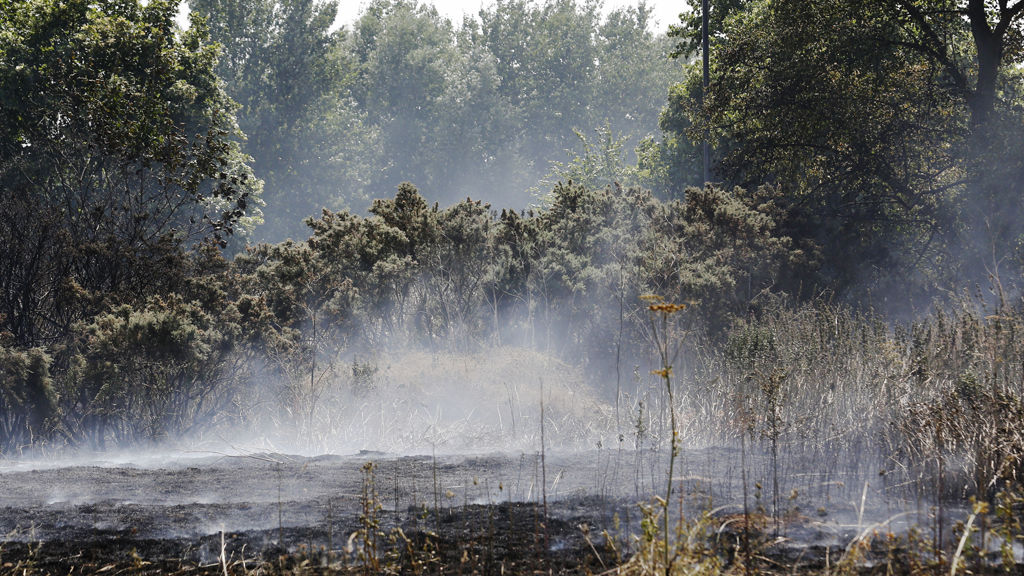Are fires about to take the fun out of Britain’s heatwave?
While Britain bakes in one of the hottest heatwaves ever, firemen in Scotland, Wales and London are having to contend with fires breaking out in woods and open grassland.
Firefighters have been tackling blazes in the valleys of south Wales, while swathes of Tentsmuir forest in Scotland were destroyed on Thursday night.
London has experienced the worst grass fires since 2006, with 37 breaking out since Wednesday afternoon. On Friday afternoon as many as 60 firefighters were called to a fire in part of Epping forest in Leytonstone, east London (see video above).
Temperatures topped 32C on Wednesday and could hit 35C early next week.
Meteorologists say Britain is in the midst of its first prolonged heatwave since 2006, with six consecutive days of temperatures above 30C.
It is set to continue into next week with temperatures in the high 20s Celsius at the weekend before rising to 30C and above next week – bringing with it an increased risk of thunderstorms.
Officials from Public Health England are advising people to stay cool, drink lots of cold fluids and keep an eye on those they know to be at risk.

Drowning deaths
Police and fire chiefs have reiterated warnings about escaping the heat by swimming in open water after five people died in separate incidents.
A 16-year-old boy from London and a 41-year-old man from King’s Lynn died on Thursday night in unrelated incidents at Bawsey Pits, a series of flood quarries in Norfolk.
In Cornwall, a 40-year-old woman died while swimming in the sea and a man died after getting into difficulties while in a river on the Shropshire/north Wales border.
Police in Lincolnshire reported another death on Friday, after a 69-year-old woman was pulled from the sea in Skegness.
Sweltering classrooms
Meanwhile, teaching unions have suggested that children should be sent home from school if classroom temperatures get too high.
The impact of excessive temperatures on teaching and learning needs be given serious consideration. Chris Keates
Chris Keates, general secretary of the NASUWT, said: “The impact of excessive temperatures on teaching and learning needs be given serious consideration.
“Pupils become extremely lethargic, unable to concentrate and in some cases faint. Lessons are disrupted by constant requests for time out to get drinks of water or to go outside and many tasks take far longer to perform. Teachers report that the quality of work undoubtedly suffers at such times.
“Teachers are also concerned about the impact on pupil behaviour, reporting that pupils become irritable and in some cases aggressive with each other.”
-
Latest news
-
India’s ‘YouTube election’: Influencers enlisted to mobilise youth vote6m

-
Putin denies plans to capture Ukrainian city of Kharkiv3m

-
Plaid Cymru ends co-operation agreement with Welsh Labour government4m

-
Infected blood scandal: Government was warned years before taking action6m

-
Displaced in Gaza have to ‘start from Zero’ many times over, says Gaza NGO director3m

-




